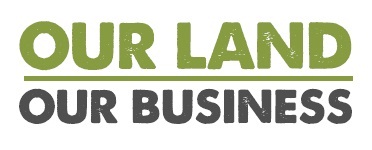Source: IPS
April 18, 2019
KUALA LUMPUR and SYDNEY, Apr 18 2019 (IPS) – The World Bank’s Enabling the Business of Agriculture (EBA) project, launched in 2013, has sought agricultural reforms favouring the corporate sector. EBA was initially established to support the New Alliance for Food Security and Nutrition, initiated by the G8 to promote private agricultural development in Africa.
The New Alliance has been touted as “a new model of partnership” for agricultural transformation in Africa. The Bank has used the EBA to address the land issue in developing countries, particularly in Africa. The US and UK governments as well as the Gates Foundation are among its strong supporters in line with their broader support for corporate agriculture.
Emulating the influential annual World Bank Doing Business report, the EBA scores countries on the ease of doing business in agriculture. It purports to measure ‘legal barriers’ to agribusiness and to prescribe reforms in twelve areas, including seeds, fertilizers, trade and machinery.
It advocates reforms in favour of agribusiness by weakening regulations over seeds, fertilizers and pesticides and strengthening foreign agribusiness power and influence. Missing from the partnership are peasants and indigenous peoples whose livelihoods depend on traditional land uses.
Dangerous new indicator
The 2017 EBA report proposed a new indicator on land, initially piloted in 38 countries, to be extended to more in the 2019 report. The Bank claims to be seeking to better protect land rights and to ensure more equity in land access. It is biased towards industrial agriculture and agribusiness, and the intent of the new indicator makes it even more urgent to challenge the EBA initiative.
As Frédéric Mousseau of the Oakland Institute emphasised, EBA best practices seek to promote large-scale ‘industrial’ or plantation agriculture, at the expense of family farmers and communities using the land in other ways, including pastoralists and those currently categorized as indigenous peoples including swidden cultivators, hunters and gatherers.
The EBA advocates certain reforms and policy measures, raising concerns about its likely impact, if implemented by governments. The Bank advocates formalizing (private) property rights, enabling greater commercial sale and lease of land, claiming that productivity will thus be enhanced.
UNCTAD’s 2009 World Investment Report cautioned that “Greater involvement by TNCs will not automatically lead to greater productivity in agriculture, rural development or the alleviation of poverty and hunger”.
Even joint research by World Bank and IFPRI staff is circumspect about the claimed benefits of large scale commercial farming in light of likely environmental, social and productivity impacts. Large scale commercial farming has often involved environmental degradation, forced evictions and human rights violations, worsening food insecurity and livelihood destruction.
View Full Article at IPS

World Bank Dispossessing Rural Poor
Source: IPS
April 18, 2019
KUALA LUMPUR and SYDNEY, Apr 18 2019 (IPS) – The World Bank’s Enabling the Business of Agriculture (EBA) project, launched in 2013, has sought agricultural reforms favouring the corporate sector. EBA was initially established to support the New Alliance for Food Security and Nutrition, initiated by the G8 to promote private agricultural development in Africa.
The New Alliance has been touted as “a new model of partnership” for agricultural transformation in Africa. The Bank has used the EBA to address the land issue in developing countries, particularly in Africa. The US and UK governments as well as the Gates Foundation are among its strong supporters in line with their broader support for corporate agriculture.
Emulating the influential annual World Bank Doing Business report, the EBA scores countries on the ease of doing business in agriculture. It purports to measure ‘legal barriers’ to agribusiness and to prescribe reforms in twelve areas, including seeds, fertilizers, trade and machinery.
It advocates reforms in favour of agribusiness by weakening regulations over seeds, fertilizers and pesticides and strengthening foreign agribusiness power and influence. Missing from the partnership are peasants and indigenous peoples whose livelihoods depend on traditional land uses.
Dangerous new indicator
The 2017 EBA report proposed a new indicator on land, initially piloted in 38 countries, to be extended to more in the 2019 report. The Bank claims to be seeking to better protect land rights and to ensure more equity in land access. It is biased towards industrial agriculture and agribusiness, and the intent of the new indicator makes it even more urgent to challenge the EBA initiative.
As Frédéric Mousseau of the Oakland Institute emphasised, EBA best practices seek to promote large-scale ‘industrial’ or plantation agriculture, at the expense of family farmers and communities using the land in other ways, including pastoralists and those currently categorized as indigenous peoples including swidden cultivators, hunters and gatherers.
The EBA advocates certain reforms and policy measures, raising concerns about its likely impact, if implemented by governments. The Bank advocates formalizing (private) property rights, enabling greater commercial sale and lease of land, claiming that productivity will thus be enhanced.
UNCTAD’s 2009 World Investment Report cautioned that “Greater involvement by TNCs will not automatically lead to greater productivity in agriculture, rural development or the alleviation of poverty and hunger”.
Even joint research by World Bank and IFPRI staff is circumspect about the claimed benefits of large scale commercial farming in light of likely environmental, social and productivity impacts. Large scale commercial farming has often involved environmental degradation, forced evictions and human rights violations, worsening food insecurity and livelihood destruction.
View Full Article at IPS